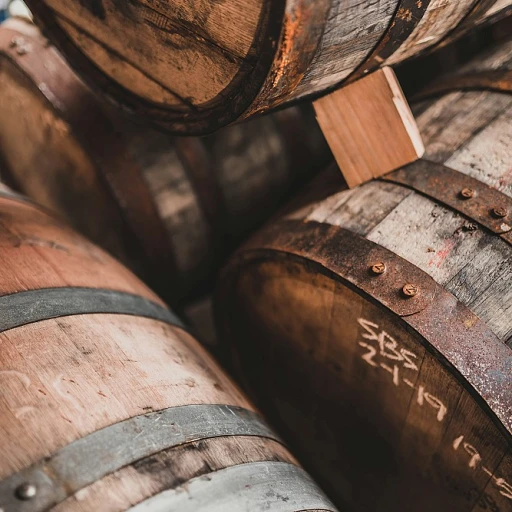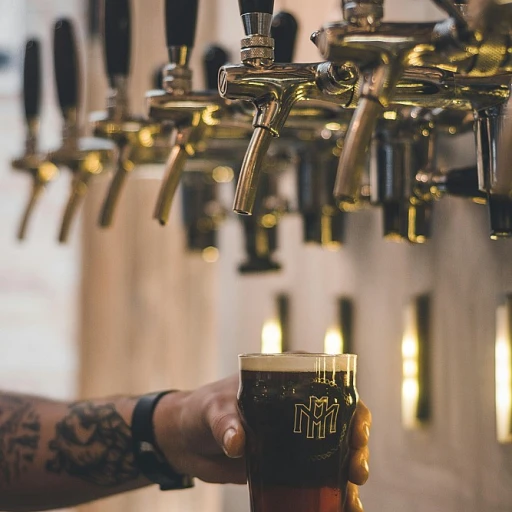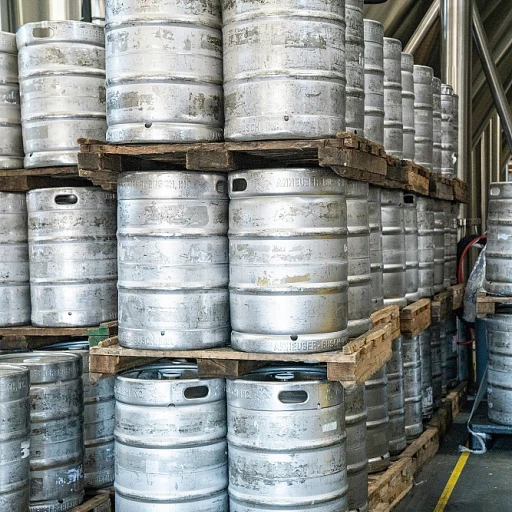
African beer culture: more than just a drink
Beer as a social and cultural cornerstone
Across Africa, beer is far more than a beverage—it's a vital part of daily life, celebrations, and community gatherings. From rural villages to bustling cities, sharing a beer often marks important milestones, welcomes guests, and strengthens bonds between friends and families. The act of brewing and drinking together is woven into the fabric of many African societies, reflecting values of hospitality, unity, and tradition.
Rituals, ceremonies, and local customs
Beer plays a central role in numerous rituals and ceremonies. Whether it's a wedding, harvest festival, or ancestral remembrance, traditional brews are often prepared and shared as offerings or symbols of respect. Each region boasts its own unique customs, with recipes and brewing techniques passed down through generations. These traditions highlight the diversity and depth of African beer culture, setting the stage for the exploration of ingredients and brewing methods that make these beers so distinctive.
For those interested in how beer traditions compare across the globe, you might enjoy reading about unique beer flavors from the Bahamas as another example of how local culture shapes brewing.
Traditional brewing: sorghum, maize and the heart of african beers
Ingredients rooted in tradition
Across Africa, brewing beer is a practice deeply connected to local agriculture and community. Unlike the barley-based beers common in Europe and North America, African brewers have long relied on indigenous grains such as sorghum, millet, and maize. These grains are not only well-suited to the continent’s climate, but they also impart unique flavors and textures to the beers, making each region’s brew distinct.
Brewing methods passed down through generations
Traditional African brewing is often a communal affair, with recipes and techniques handed down from elders. The process typically involves malting the grains, fermenting them in large clay or wooden vessels, and sometimes adding local ingredients like honey or fruits for extra character. The result is a range of beers that can be cloudy, slightly sour, and lower in alcohol compared to commercial lagers.
- Sorghum beer: Widely enjoyed in southern Africa, this beer is known for its earthy, slightly tart profile.
- Maize-based brews: Common in West Africa, these beers are often lighter and have a subtle sweetness.
- Millet beers: Popular in the Sahel region, offering a nutty, rustic taste.
Connecting with global brewing heritage
While African brewing traditions are unique, they share a kinship with other ancient beer cultures around the world. For those interested in exploring how different regions have shaped their own brewing identities, reading about the rich heritage of Affligem beer offers fascinating parallels between African and European brewing legacies.
Modern breweries and the rise of african lagers
The evolution of brewing: from local to global
While traditional African beers are deeply rooted in local customs and ingredients, the landscape has shifted dramatically with the emergence of modern breweries. Across the continent, cities now boast state-of-the-art facilities producing crisp lagers and innovative craft styles that appeal to a wide range of tastes.
These breweries often blend time-honored methods with new technologies, creating beers that reflect both heritage and modernity. Local grains like sorghum and maize, once used exclusively in homebrews, are now finding their way into commercial recipes, giving African lagers a unique character that sets them apart from their global counterparts.
- Major urban centers have become hubs for beer innovation, with breweries experimenting with indigenous ingredients and international styles.
- Many African lagers are designed to be refreshing and easy to drink, perfect for the continent’s warm climate.
- There is a growing appreciation for the art of serving beer, with attention to glassware and presentation—learn more about the importance of the goblet beer glass in enhancing the experience.
As you explore African beers, you’ll notice how modern breweries are not just producing beverages—they’re shaping a new narrative that honors tradition while embracing innovation. This dynamic evolution is making African lagers increasingly popular both at home and abroad.
People behind the beer: stories from african brewing
Faces and stories shaping Africa’s brewing landscape
Across Africa, beer is more than a beverage—it’s a reflection of the people and communities who craft it. Behind every batch, there are passionate brewers, family businesses, and local innovators who keep traditions alive while embracing new ideas.- Generational knowledge: Many African brewers inherit their skills from parents and grandparents, blending time-honored techniques with their own creative touches. Brewing is often a communal activity, with recipes and methods passed down and adapted for each region’s unique ingredients.
- Women at the heart of brewing: In several African countries, women have long been the primary brewers, especially of traditional beers made from sorghum or maize. Their expertise ensures both quality and continuity, making them central figures in local beer culture.
- Entrepreneurs and craft pioneers: The rise of modern breweries has brought a new generation of African entrepreneurs into the spotlight. These brewers experiment with local flavors, introduce innovative styles, and help put African lagers and ales on the global map.
- Community connections: Brewing often supports entire communities, providing jobs and fostering social bonds. Many breweries source ingredients locally, strengthening ties with farmers and suppliers.
Tasting african beers: what to expect and where to start
Flavors and aromas to expect
African beers offer a wide spectrum of flavors, shaped by local ingredients and centuries-old brewing methods. Expect earthy, slightly sour notes from traditional brews made with sorghum or millet. Some beers have a creamy mouthfeel, while others are crisp and refreshing. Herbal and spicy aromas often come from indigenous grains and natural fermentation.How to approach your first tasting
- Start with lighter, filtered lagers if you’re new to African beers. These are more approachable and showcase the modern evolution of brewing on the continent.
- Move on to traditional, unfiltered varieties. These might appear cloudy and have a thicker texture, but they offer a unique taste of local culture and history.
- Pair your tasting with local foods. African beers often complement spicy, grilled, or fermented dishes, enhancing both the drink and the meal.
Where to find authentic African beers
- Look for specialty bars and restaurants that focus on African cuisine.
- Some craft beer shops and online retailers import African brands or even local interpretations of classic styles.
- If you travel, breweries and small taprooms across Africa often welcome visitors for tastings and tours, offering a deeper connection to the people and stories behind each beer.
Tips for a memorable tasting experience
- Use a clean glass to appreciate the color and aroma.
- Take small sips and let the flavors develop on your palate.
- Share the experience with friends or fellow enthusiasts to compare impressions and learn together.













